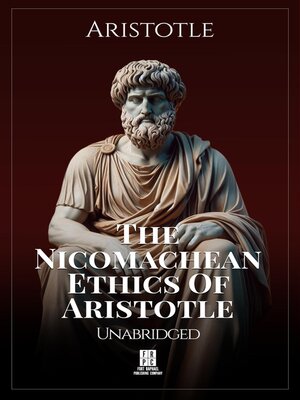The Nicomachean Ethics of Aristotle--Unabridged--Introduction and Footnotes by Prof. J.A. Smith
ebook
By Aristotle

Sign up to save your library
With an OverDrive account, you can save your favorite libraries for at-a-glance information about availability. Find out more about OverDrive accounts.
Find this title in Libby, the library reading app by OverDrive.



Search for a digital library with this title
Title found at these libraries:
| Library Name | Distance |
|---|---|
| Loading... |
The Greek philosopher and polymath Aristotle coined the word "ethics" to describe the field of study developed by his predecessors Plato and Socrates which examined how human beings should best live their lives. In their writings, these men sought to describe aspirational goals and societal mores that human civilization should value and encourage, with an emphasis on virtue. Men, Aristotle argued, should always attempt to do the right thing in any given situation.
Aristotle's best-known book on this subject is his "Nicomachean Ethics," a ten-book collection on the discipline of human virtue itself. In it, Aristotle asserts that being ethical is not simply knowing the proper way to behave in a society. To be ethical, one must actually strive to do the right thing every day, in every situation.
This book was hugely influential on the English Middle Ages and became a foundational document for medieval theology. Aristotle's teachings would form the basis for modern philosophy, law and theology and his books and theories are studied, debated and discussed to this day.
This publication of "The Nichomachean Ethics" is presented with an introduction and footnotes by renowned British philosopher J.A. Smith.







